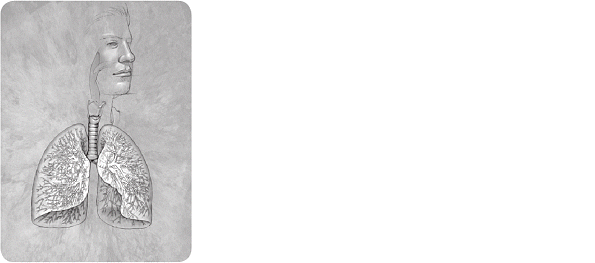TUESDAY, DAY 2
DISEASES AND AILMENTS
Asthma
Since at least ancient Greece, there are records of healers treating the chronic lung disorder asthma. Throughout the centuries, remedies have included breathing in herbs and animal feces steamed over hot stones, eating large quantities of chicken soup, and simply praying. Although modern scientists have yet to unearth a cure for the disease, they’ve developed far more effective medicines.

Afflicting some 22 million Americans, asthma is caused by inflamed bronchial airways, the tubes that transport air in and out of the lungs. These airways constrict as mucus clogs the passageways, causing episodes of wheezing, coughing, chest tightness, and shortness of breath. About half of all asthma cases develop before age 10 and are typically linked to a genetic sensitivity to allergens, such as pollen and dust mites. In fact, experts estimate that a child with one asthmatic parent has roughly a one-in-four chance of inheriting the disease; having two parents raises those odds to nearly three in four. But allergies, viral infections, and chronic exposure to pollutants can also lead to the onset of asthma in adults.
A variety of triggers, including allergens, cigarette smoke, and respiratory infections, can bring on an asthma attack. These bouts are treated with a fast-acting bronchodilator, which relaxes the airway muscles. This medicine is administered through a handheld inhaler or, for more severe cases, a mouthpiece or mask called a nebulizer. People with asthma may also often take a daily corticosteroid to control inflammation and prevent the onset of symptoms.
ADDITIONAL FACTS
- In the late 1800s, manufacturers marketed asthma cigarettes, which contained herbs.
- The word asthma is derived from a Greek word meaning “to gasp.”
- Children with asthma often outgrow it by adulthood.